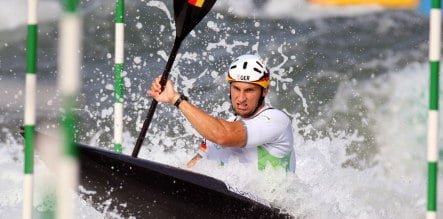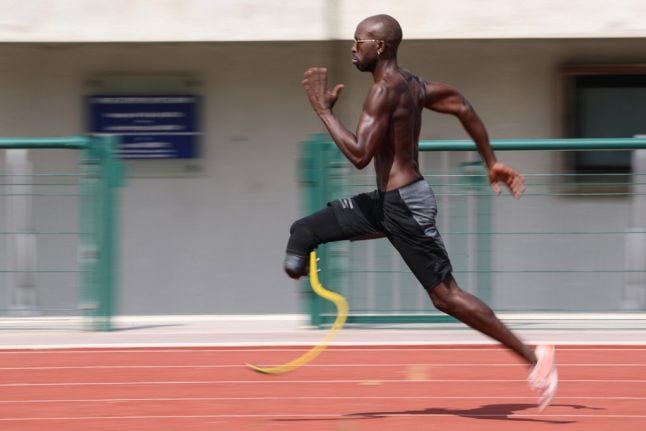Grimm’s gold secures Germany’s position as Olympic champion in the discipline, as it follows Thomas Schmidt’s first place in Athens four years ago.
“It’s an amazing feeling,” Grimm told reporters in Beijing immediately afterwards. “This has been my dream since I was a child. I can’t believe it.
“Everything just fit together. I have never had such a feeling during a competition. I think I will only be able to really believe it when I have the gold hanging around my neck.”
He beat Frenchman Fabien Lefevre and Togoan Benjamin Boukpeti in the slalom to claim Germany’s 18th medal of the Games, but the first gold.
He only made fourth in the first run, but dominated during the second run to take the lead, and keep it.
Boukpeti provided an upset by leading in the first run, while his bronze medal is the first ever in the canoe discipline to be won by an African.
Later in the day Ole Bischof collected Germany’s second gold in Judo, with a surprise win against the Korean Kim Jaebum in the 81-kilo class.
And Germany’s three-day eventing team made it look easy when they won the first gold medal of the Olympic equestrian events convincingly from runners-up Australia.
Germany’s Hinrich Romeike, on his gelding Marius, clinched the gold for his team as the last of 57 riders to take on the 13 fences. His one fault, which cost him four penalty points, may have been a personal disappointment for a man who has taken his hobby to Olympian heights.
But after Australia’s Megan Jones and her mount Irish Jester, the penultimate combination in the show-jumping, failed to go clear, the gold was only going one way.
This victory was consolation of sorts for Germany’s bitter loss in the Athens Games in 2004, when the gold medal was taken away from the team and given to France after Bettina Hoy, one of the best-known riders in the world, was penalized for crossing the starr line twice.
dpa/afp





 Please whitelist us to continue reading.
Please whitelist us to continue reading.